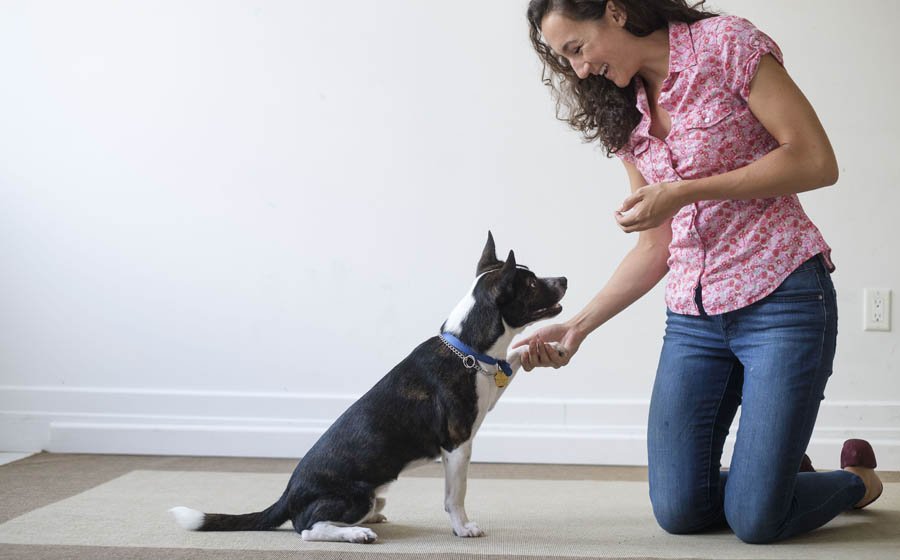Training your four-legged friend can be an exciting and challenging experience. But nothing beats the joy of seeing your pup master various commands or adjust their behavior to your wishes. Often, professional training helps dogs become better-behaved and more obedient.
To that end, Canine by Design offers premium and personalized service dog training classes in Lehi ut. Their clients also frequently ask “how long will it take to train my dog?” Well, the experts at the firm don’t have a direct or easy answer, as various aspects of a pup’s training play a role. Let’s delve into the subject to paint a better picture of what they mean.
1. Type of Training
What type of skills are you trying to teach your pup? Depending on the type of training you’re considering, the time it takes to train your dog can vary greatly. For instance, teaching basic skills, like sitting or staying, takes about six weeks.
Advanced training typically takes longer, as teaching your dog more complex commands is more challenging. If you want a service dog, this type of training takes at least 6 months or 120 hours, as the International Association of Assistance Dog Partners (IAADP) guidelines reveal. This also depends on the type of skills the service dog needs.
Likewise, if you’re exploring training to change their behavior, like stopping excessive barking, a more nuanced approach might be necessary, such as behavior modification training. This type of training can take longer, but it’s necessary to create lasting change.
Also, the intensity of the training determines the time needed. Case in point, a crash program can speed up the process, but it might not be as effective in creating lasting change. As such, intensive training for limited periods only works when used as a refresher and not as the main approach.
2. Dog’s Personality
Every pup is different, and the time it takes to train them reflects their personality. Some dogs may learn faster than others, while some breeds can be slower to catch on to commands. As such, it’s advisable to work with a professional dog trainer who can gauge your pup’s progress.
Besides, dogs adopted from shelters may need more time to adapt to a new environment and become comfortable in their new home. That’s because some may have been through traumatic experiences in the past. For instance, if a dog was abused, it might take longer to train due to the trauma and lack of trust. All the same, it boils down to the individual, and genetics only play a minor role.
3. Dedication and Consistency
How invested in the process are you? Do you have the time to practice with your pup regularly? The more you can rehearse and practice the commands, the sooner your pup can learn.
No matter the type of training, you should be actively involved in the process. In fact, it’s doubtful your dog can learn commands without effort on your part. Sure, the trainer can do their bit to instill the commands, but your pup also needs to hear it from you.
In other words, you should reinforce the skills your pup learns so they can develop and get better at them. That might include repeating the same commands multiple times a day for several weeks.
4. Stage in the Dog’s Development
Experts recommend early dog training to prepare your dog for the world around them. Learning basic skills helps with socialization and builds up confidence in unfamiliar environments. Thus, you should consider puppy training to create a good foundation for future training and behavior.
What’s more, puppies learn faster than adult dogs as they’re more malleable. For instance, a study found that puppies reach 90% accuracy for obedience commands after five or so repetitions and have a higher success rate if their training session lasts less than 10 minutes.
Along the same lines, it can take longer if you’re planning to teach an adult dog that has never been trained before. Typically, they’ll need to unlearn their bad habits first before acquiring new ones. And as we know, old habits die hard. Hence, getting your dog to unlearn old habits might take more time and effort.
Plus, adult dogs may be slower to learn new commands, implying you should be patient with them. That said, this can extend the training process.
5. Level of Socialization
How well is your pup socialized? It takes time for dogs to get used to other people and animals. That’s why it pays to expose them to new experiences and environments as early as possible. In turn, this helps them develop better socialization skills and creates familiarity with their surroundings, which may shorten the training process.
Conversely, dogs lagging in socialization take longer to train due to their lack of comfort and trust. Moreover, if your pup had negative experiences with people or other animals, they may take longer to adjust.
A dog’s training timeline varies greatly depending on multiple aspects. As such, we can’t offer a definitive answer on when they are fully trained. That said, if you are dedicated to helping your pup reach their full training potential, consider investing in the services of an experienced professional trainer.
















